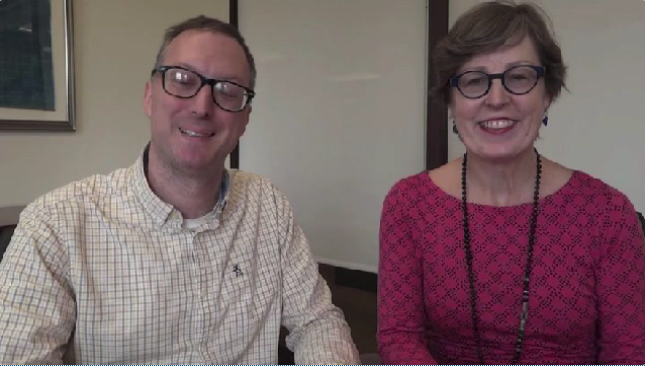Put down the Xanax and find out how to handle stress. This week, MedShadow Founder Su Robotti and Content Manager Jonathan Block talk about how to get started using easy forms of meditation such as breathing exercises to manage stress during the holidays.
Check out this conversation about getting started with meditation, originally recorded during the holiday season in 2016.
Su Robotti: Hello and welcome to MedShatowTV. My name is Sue Robotti, and I’m the founder of MedShadow.
Jonathan Block: And I’m Jonathan Block. I’m the content manager for MedShadow.
SR: Today, we’re going to talk to you about stress. We’ve been feeling a lot of stress. The holidays are coming, and stress is caused by too much food, too many relatives, too much pressure, too much gift shopping, too much drinking.
The key here is too much. Today, we want to help you take it down a notch, calm down, and we want to help you do that through meditation.
Browse This Article
What is Stress?
First of all, what is stress? The physical response to a stressful situation is adrenalin and cortisol enter your bloodstream. It increases your blood pressure, and your heart rate starts to go stronger. And if this isn’t dealt with easily or quickly, and it continues for a period of time, it can lead to gastrointestinal problems. It can lead to heart disease. It can lead to brain dysfunction like I’m having now. It can lead to a lot of long-term issues with heart disease and gastrointestinal problems among other things.
But Jonathan, what do you suggest we do? How to handle stress? Should we pop a pill? That would be very quick.
JB: Absolutely, don’t. You’ve actually alluded to it, and that was through meditation, which is the main part of an idea known as mindfulness, which is defined as being aware of the present. I mean, I know what a lot of people are thinking — the same thing that I was thinking when I heard the word mindfulness. That just sounds like a whole bunch of new age hooey.
SR: Hooey?
JB: Hooey.
SR: Okay.
Does Getting Started with Meditation Really Help Stress?
JB: I’m going old school. I can tell you from a personal experience as somebody who’s dealt with stress, and anxiety, and depression. Meditation associated with mindfulness actually does work. It works well and help you if you wonder how to handle stress.
And why don’t you take a pill? Because pills have side effects.
Mindfulness meditation — and we’ll be discussing this in a little bit — there are clinical studies that have demonstrated that mindfulness meditation can be used for a number of different conditions avoiding these sort of drugs, which as our MedShadow audience knows, most of which — if not all — are associated with side effects, drug interactions, or other nasty effects.
SR: In fact, is meditation as effective as antidepressants?
JB: Yes, it is. There’s been, I want to say, 40 to 50 clinical studies done just on comparing mindfulness and meditation with antidepressants. They’ve all come to the same conclusion. Mindfulness meditation is as effective as antidepressants.
So why — I know what you’re going to say. I’m going to read your thoughts. But why not just take a pill, right?
SR: Why not?
JB: I know that’s the easy way to go out. The thing is is that as I just mentioned, antidepressants and other antianxiety pills like the Xanax or the Valium that some people in our audience may be taking, have taken, or thinking about taking.
Mindfulness meditation is something that you can teach your brain how to think and how to handle stress. It helps you relax without the use of drugs, and therefore you can learn how to deal with stress and anxiety over the long term. It’s actually much better for you, because you’ll actually train your brain how to better handle stress and anxiety but without the nasty side effects of a pill which means it is harder work.
But in the long term, the long-term efficacy of it has been demonstrated whereas with antidepressants, we know that people develop problems, and they lose their efficacy. And for some people taking antidepressants and anti-anxiolytic drugs, they just aren’t even effective anymore.
How to Try Meditation
SR: So let’s take a breath.
JB: Yes.
SR: And how do you meditate? Do you have to sit cross legged? Do you have to hold your fingers in the air? Do you have to say, “Ohmm”?
JB: No, you’re thinking of some of the Buddhist meditation. But this type of meditation like the meditation that pretty much busy people or people that don’t want to go, “Ohmm,” want to do — can take as little as 10 minutes.
That’s what I do a day. I only do 10 minutes. I do some breathing exercises. There are also ways which if you learn more about mindfulness and we’ll provide you with some information about that in a second — the mindfulness, actually, you train your brain to relax. I know this sounds weird, because I didn’t believe it until I started doing it. And then in the words of a great Monkees song, “I’m a Believer,” and I’m a believer now about how effective mindfulness is and how effective mindfulness meditation is as well.
SR: So do you take classes? How do you learn to do this?
JB: I do a combination of things. I have read some books. There’s an excellent website that is operated by the fine people at UCLA known as the UCLA Mindfulness Awareness Research Center. That address is http://marc.ucla.edu. They actually have free relatively short meditations that you can download and listen to, and you can start on your own.
There’s another resource that I use a lot. This is a paid resource. It’s an app, and you can also do on your computer called Headspace. But I pay — I find it particularly effective. I looked at a lot of them, and I find Headspace — just to let the audience know, neither Headspace nor UCLA has asked us to mention them. This is just from my own personal experience.
SR: And then I’ll add one that’s free that I use; it’s called Breathe. But there are many, and you’ll find the one that you like if you just Google guided meditations, and you’ll find it. [Or Check out MedShadow’s article, Melt Into Deep Sleep with YouTube’s Guided Meditations.]
I started meditating by simply becoming quiet and not using guided meditation — just setting a timer and trying to still my thoughts calmly for 3 minutes at a time. I got up to 5 minutes. And honestly, guided meditation is much easier.
JB: Oh, yes.
SR: And I would like to graduate to regular quiet meditation. But for now, I’m finding that I become more calm and happy using the guided meditation.
What Else Can Meditation Do for You?
JB: And if you’re a novice — I still consider myself a novice — I find that the guided meditation works a lot better.
Just one other point because I know we’re talking a lot about this. It’s that mindfulness meditation is actually good not only for — works well, I should say — works not only well for depression, anxiety, and stress, but it’s been shown that people that want to lose weight through practice of mindfulness meditation, they can actually teach themselves to eat less.
SR: Eat less during meditation?
JB: No, afterwards, because they train their brain.
SR: You mean through their mindfulness.
JB: Right, because they think — like they ‘think before.’ You’ve heard the term, “Think before you act.”
SR: Uh-hum. How to handle stress?
JB: You teach yourself how to think before you eat, and you’re more careful at what you eat. But just by taking a few — by doing 10 minutes of meditation every day and then when you go and decide to have your meal, people who have done meditation and mindfulness, they train their brain to think, “Maybe I don’t need that side of French fries. Maybe I should get a side of quinoa or something of that nature, something of a more healthy starch.”
SR: Yes. My downfall is more of when I’m in a family situation, and there’s cheese, and crackers, and nuts, and all these good stuff in front of me, and I find I’m eating without thinking. I think you’re going to tell me that that’s not mindful.
JB: It’s not mindful, but everybody is allowed during the holidays to cheat a little bit. The thing is not to make it a regular part of your life. And even if you just have a few — if you — let’s say you cut out — maybe you only eat nuts, but instead of reaching for the Ferrero Rocher chocolate, maybe in parties you might have had 3. Now, maybe you’ll only have 1. That’s even mindfulness just like making even a slight change. And then as you get better and better at mindfulness and meditation, you’ll learn to control yourself better.
SR: Okay. So instead of taking a pill, instead of eating chocolate, instead of taking a long hot soak in the tub, what we’re going to do is try meditating to de-stress.
JB: Actually, taking a long hot soak in the tub is actually very good.
SR: Soak in the tub — we’re saying yes to this.
JB: We are saying yes to that.
SR: What about taking a walk or a jog?
JB: Also excellent.
SR: Okay.
JB: Just lose the medications and go easy on the chocolate.
SR: Okay. Do that and have a great holiday.
JB: Yes. From all of us here at MedShadow, thank you for making MedShadowTV, which just premiered this year, such a wonderful success, and a happy holidays to you and your family. Take care and remember how to handle stress.







